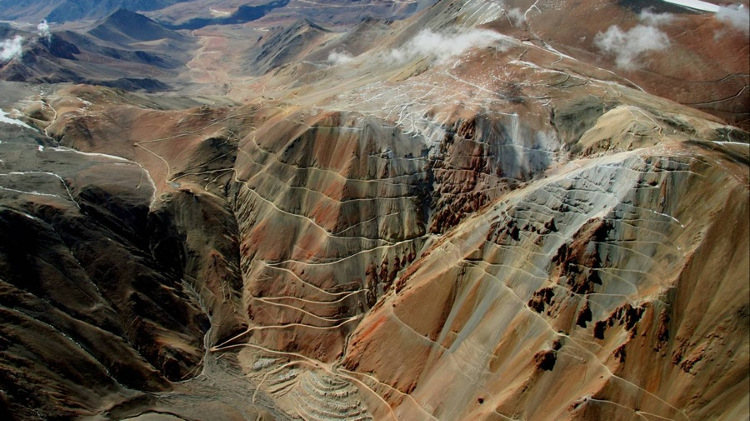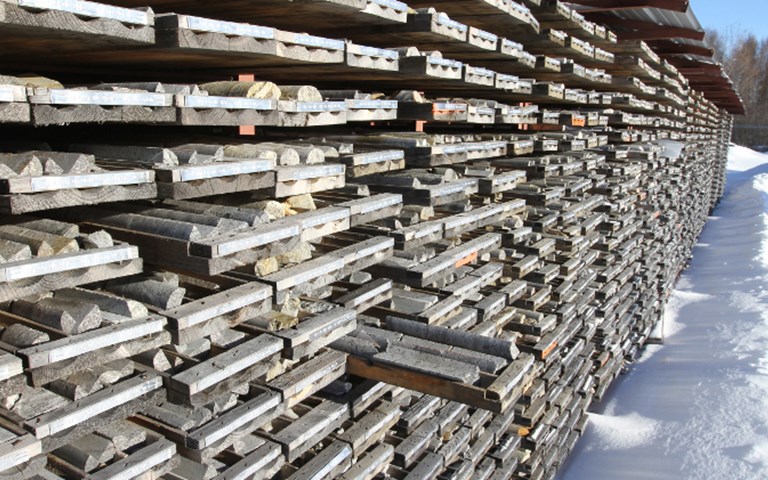Core samples at Nouveau Monde's Matawinie project north of Montreal. The company wants to make Matawinie the first all-electric open pit mine. Courtesy of Nouveau Monde Graphite
Welcome back to your weekly mining news recap. At the end of every week we’ll catch you up on the mining news from CIM Magazine and elsewhere that you might have missed. Among this week’s headlines: Brazil updates its mining law, Vale greenlights an underground mine at Voisey’s Bay and a Quebec junior miner plans an all-electric surface mine.
This week started on a high note with some big news out of Newfoundland. Vale is going ahead with an underground mine at Voisey’s Bay, Newfoundland and Labrador Premier Dwight Ball and Eduardo Bartolomeo, Vale’s executive officer for its base metals division, announced in St. John’s on Monday. As we reported, construction on the project, which begins this summer, will be partially financed by two cobalt streaming deals Vale signed with Wheaton Precious Metals and Cobalt 27 Capital. Vale will get a combined US$690 million upfront from the deals, which will cover about 40 per cent of the mine’s US$1.7-billion construction costs.
Speaking of cobalt streaming, Wheaton Precious Metals chief executive Randy Smallwood told the Financial Post on Monday that the Vale deal was the first time the streaming company had moved outside the gold and silver space. “What I see when I study the market changes,” Smallwood said, “is electric vehicles are here to stay, and they will eventually replace internal combustion carbon-based fuels.”
Also on Monday, we reported that Nouveau Monde Graphite, a Quebec junior miner, wants its Matawine project north of Montreal to be the world’s first all-electric open pit mine. Nouveau Monde is currently working on a feasibility study for the project, and CEO Éric Desaulniers says the company is “pretty confident that after basic engineering work is done, it will be revealed to be cheaper to operate all-electric.” Matawinie has some specific factors that make an all-electric design more practical than it would be for most surface mines, like proximity to the power grid as well as access to a small town nearby.
Brazil overhauled its 50-year-old mining laws on Tuesday, with the country’s President Michel Temer signing two decrees that allowed him to bypass congress to make the changes. The changes allow for mining titles to be used as guarantees for financing, which, Reuters reported, is aimed at increasing investment in the sector and allowing miners to continue mineral exploration while their production license applications are still in review. The decree also places stronger requirements on operators for mine closure planning.
Centerra Gold’s ongoing conflict with the Kyrgyz Republic has flared up again. The country’s new prime minister, Muhammetkaliy Abulgaziyev, said he wants to put a settlement that would have resolved environmental, legal and other disputes between the country and the company to a parliamentary review. The settlement was reached last September, but the country has twice extended the deadline to finalize it.
Since we’re on the topic of feuds, mining companies like Glencore, Randgold and Ivanhoe Mines have made no headway in their efforts to fight the Democratic Republic of the Congo’s new mining legislation. The country approved the final part of bill last Friday, and the law hasn’t been eased from its original draft in any way. According to Bloomberg, mining companies have few options they could pursue; international arbitration is a possibility, or the “nuclear option” of stopping all production, though, with an expected boom in demand for cobalt, that is something that could harm the companies themselves.
Mining companies and manufacturers have taken up a spate of initiatives in the first half of 2018 to make mining supply chains more transparent – but experts in sustainable mining practices say these initiatives fall short of solving supply chain challenges faced by artisanal and small-scale miners. We spoke with the World Bank and the Canadian International Resources and Development Institute about the growing pains faced by supply chain certification programs.



